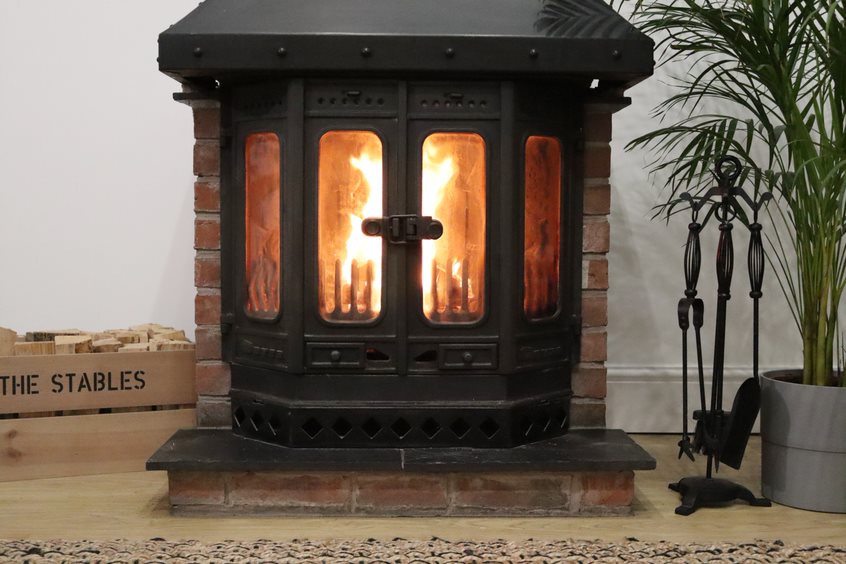

The good news is that log burners are not being banned in Scotland in 2024, and there are currently no plans to ban them in the future.
There was a temporary ban on installing new log burners into new build homes from April 2024 to November 2024 but this has now been reversed, due to changes to the New Build Heat Standard regulations.
This article focuses on the rules in Scotland. If you're looking for information on the rest of the UK, try 'Are Log Burners Being Banned in the UK' instead.
What is the New Build Heat Standard?
The New Build Heat Standard (NBHS)is a set of regulations created by the Scottish Government, which required new buildings to install climate-friendly heating systems instead of oil and gas boilers. The Scottish government says that the NBHS exists to ensure new buildings do not contribute to carbon emissions.
Are log burners banned in Scotland under NBHS?
Log burners are not being banned in Scotland under the NBHS.
The New Build Heat Standard came into effect in April 2024 in Scotland, which initially banned new log burner installations in new build domestic houses.
However, the decision was reversed 7 months later, in November 2024 and log burners are now allowed to be installed into new build domestic homes again.
The ban did not impact the use of existing log burners, and it did not ban the installation of log burners in existing homes, only the installation of log burners into new domestic buildings.
Log burners as a whole have never been banned in any of the UK, and there are no plans to ban log burners now or in the future.

Why did the NBHS initially ban the installation of log burners?
There is a lot of conversation and discourse around the effects of domestic wood burning (ie. burning wood in your log burner or open fire) at the moment.
Wood burning produces particulate matter (PM) which can be detrimental to air quality, and governments rightly want to reduce this.
However, the statistics around the impact of domestic wood burning are wildly unreliable as most have been obtained through surveys - asking homeowners to estimate how often they burn wood and what they burn.
There is a huge difference in the environmental impact of burning coal and wet wood compared to burning properly kiln-dried hardwood which has a moisture content less than 20%.
As a general rule, the lower the moisture content of the wood, the less PM it emits.
Would banning log burners be good for the enviroment?
We don't think so!
We think they key thing is educating people on how to burn wood responsibly in their log burner.
To minimise PM emissions, you should only burn properly kiln-dried wood with less than 20% moisture content.
The stove you use to burn wood is also important. A properly fitted Ecodesign Ready stove can halve the PM emissions compared to an inefficient, older stove. As of May 2021, all new log burner installations have to be EcoDesign Ready.
It's important to note that industrial buildings are not included in the NBHS and that the government actually offers incentives to business to switch to burning biomass. So they're offering rewards to businesses to burn wood, whilst penalising consumers for doing the same thing - it doesn't make sense!

How can I burn wood responsibly in my log burner?
Burning wood responsibly in your log burner means burning properly dry wood, and allowing enough oxygen flow so that your wood doesn't smoulder.
Burning kiln-dried wood with less than 20% moisture, typically emits around half of the PM when compared to wet wood, so make sure you buy your firewood from a reputable, trusted supplier (like Love Logs!), and buy a moisture meter if you have any doubts.
It sounds obvious, but please don't burn wood that has been treated or painted, like old furniture. They won't burn well, and they can emit toxic pollutants into your home and the into the environment.
If you have an older, stove, don't close the air vents fully as this can cause your fire to smoulder which lets out more smoke, which is not good for your log burner or for air quality!
Found this useful?
We'd love it if you shared it with your fellow log burner enthusiasts!






